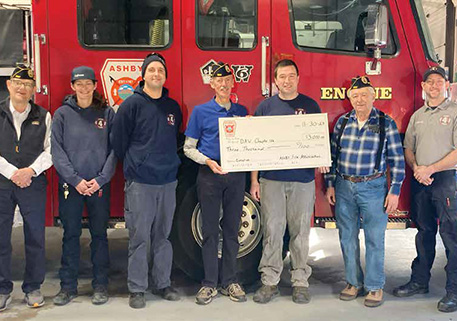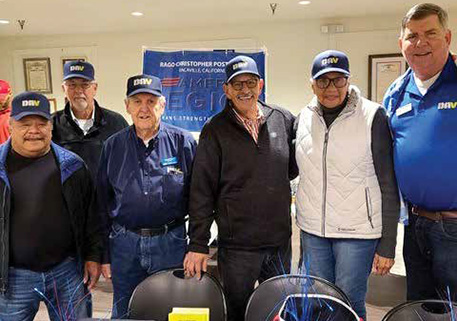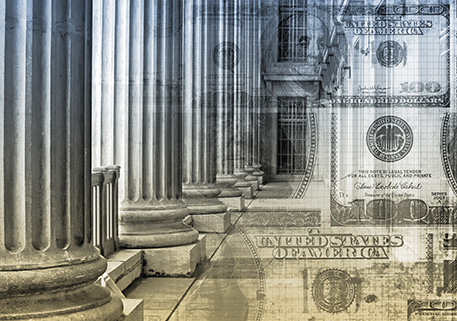 VA prepares veterans for seasonal flu amid COVID outbreak
VA prepares veterans for seasonal flu amid COVID outbreak
Influenza and COVID-19—in many ways, the two viruses can seem similar. They’re both spread from person to person through respiratory droplets. They cause many of the same symptoms, like fever and body aches. And both are known to be more dangerous for patients over the age of 65.
But in many ways, the two are also different. And while physicians have become well-versed in treating the flu from year to year, COVID-19 poses entirely new challenges for the medical community. As we enter the flu season, generally peaking from December to February, the trajectory of COVID-19 is still uncertain, leaving experts to wonder what will happen when the two viruses collide.
While social distancing practices and limited public gatherings have kept the flu season light during the Southern Hemisphere’s peak flu season this year, that is no guarantee the virus will go easy on the U.S. Dr. Robert Redfield, director of the Centers for Disease Control and Prevention, has said it could be either one of the best—or the worst—flu seasons we’ve experienced.
“Whether people will get one or the other or both, nobody knows, but certainly none of those situations is a good one for anyone,” said Dr. Jane Kim, chief consultant for preventive medicine at the Veterans Health Administration (VHA).
Part of Kim’s role is to develop policies and programs for preventive medicine, including flu immunizations, for the whole of the Department of Veterans Affairs. Not surprisingly, her best advice—even in the days of social distancing—is to make getting the flu vaccine a priority this year.
“Hands down, there is no other intervention that we have that is as effective at preventing people from getting sick and dying as the flu vaccine,” said Kim. “I’ve been telling my veteran patients it is worth going out to get your flu vaccine the same way you have to get food and groceries.”
The VA offers free flu vaccinations at all VA medical centers (VAMCs) and community-based outpatient clinics (CBOCs). Typically, all veterans need to do is ask their primary care provider for the flu shot when they visit. But with decreased foot traffic through its facilities due to the COVID-19 outbreak, the VA is taking a proactive approach to remind veterans to get vaccinated. Some facilities and even individual providers are calling veterans, sending emails and getting the word out on social media to stress the importance of the flu vaccine this year.
“Medical partners, the nursing community … we all have the same message so that if we contact veterans, we should have the flu vaccine on our agenda, no matter the reason for our contact with them. Whenever we make contact with the veteran, we also remind them about the options they have locally to get a flu vaccine,” said Kim, who noted that, in addition to VAMCs and CBOCs, community care partners and certain partnered pharmacies, some VA facilities may also be offering drive-through flu immunization services or specific appointment times.
The importance of vaccination is also being stressed among VA staff, according to Dr. Jacqueline Cook, medical adviser for occupational safety and health for the VHA.
“New this year is the seasonal influenza vaccination program for health care personnel, whereby it’s mandatory for healthcare personnel covered by the directive this year to receive the vaccination, short of having an exemption for medical or religious reasons,” said Cook.
“This is not a veteran concern or a [VA] employee concern; this is a community concern,” she added. “We’re all in this together in this prevention approach against two respiratory pathogens this season, and [COVID-19] is one we haven’t seen before. And so, while a lot of this is new to us, I think that it cannot be underscored enough that this is a VA community effort.”
According to Kim, the VA has a stockpile of roughly 400,000 unused flu vaccines remaining from 2019, combined with this year’s order for 2.8 million doses available for veterans and staff. Together with the supply available through community partners, urgent care facilities and participating pharmacies should help to ensure any veteran who wants the vaccine is able to get it.
“We know that some within the disabled veteran population have increased vulnerability to viruses like the flu and COVID-19, so we are urging preventive measures like flu shots for those able to get them, along with continued hygiene practices like hand-washing and sanitizing, social distancing and wearing masks,” said National Legislative Director Joy Ilem.
“Let’s try to stay as safe and healthy as possible and share the message with other members and fellow veterans to help lower our collective risk for spreading either of these illnesses.”
For more information on where you can receive no-cost flu shots, visit va.gov/communitycare/flushot.asp.






